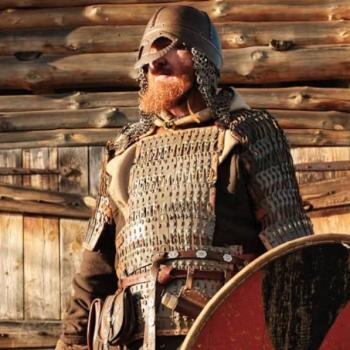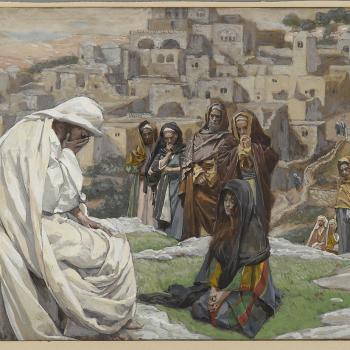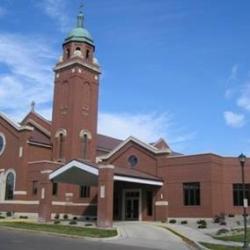
Genealogies in the Bible are what most people skip over. I do too, but I’m glad they’re there anyway. In this post I tell why and explain how the genealogies help us see the Jews as the world’s first hopeful people.
Episode 4 of the Rowing with Michael Series: A journey through the Jewish/Christian Scriptures in Verse and Commentary. Introduction and Contents for this series HERE.
Michael, row the boat ashore. Alleluia….
- How many years before you’re dead? Alleluia.
- A few score and ten years, somebody said. Alleluia.
- Folks of old lived a whole lot longer. Alleluia.
- Was the world so much nicer or the people stronger? Alleluia.
Boring lists and impossible ages
A second grader out of the blue asked a young religion teacher how people in the Bible like Methuselah could have lived so long. You had to feel sorry for the unprepared teacher. He answered, “Well, people just lived longer in those days.” I think I heard the same answer in my childhood. I may have believed it then, but I don’t today.
What are these boring lists of names doing on the pages of the Bible, anyway? And why such crazy life spans? Many of the names were taken from much older lists told by other people in Israel’s neighborhood. In these lists the people lived for thousands of years instead of just hundreds. You can see the Hebrew storytellers trying to be a little more realistic.
The Israelites absorbed some of the mythology of these surrounding peoples, but they took a giant step away from the mythical worldview. We’ll see how the genealogies helped them do that.
Myths often go like this: The world starts with an Age of Gold, when the world was a lot nicer and people stronger. (In one far Eastern version people were taller, too—by about a mile.) The world goes downhill through various ages. In the process the human lifespan (and stature) gets shorter. Eventually, according to this myth, there will be a reversal of this downward trend and a restoration of the Golden Age, and a new cycle of ages will begin, and always more cycles after that. Mircea Eliade calls this the Myth of the Eternal Return. Events on earth follow the cyclical patterns either of the stars and planets in the heavens that we see or of the goings on among the gods in an unseen world that is more real than this one.
Improving the myth
This idea sneaks into the Bible in the genealogies. The people who are listed before the Flood story, from Adam to Noah, lived much longer than the ones listed after, and within each of the two lists there is a general, though not consistent, downhill progression. The Bible makes two huge improvements on this myth, other than the slightly less unreasonable ages.
First improvement: the reason for the downward slide. It’s not that the world is wearing out. It’s not the fault of the cosmos at all but of people. Sin is increasing and making life more and more miserable. You can almost see God at the controls, experimenting to arrive at the appropriate lifespan for these creatures. When he finally decides to top it out at 120 years (pretty close to the age of the oldest people these days), it seems like a kindness. Imagine if you might live anywhere from 100 years to 1000! How would you plan for retirement? Bucket lists would be tricky. Imagine waiting for an inheritance.
- From this world of joy and woe,
- It’s nice to know about when to go.
Second improvement: The Israelites rejected the cyclical worldview that practically every ancient culture held. This world is not a spinning wheel with age upon age going through the same or essentially the same events innumerable times. This world is not a shadow or inferior copy of some other more real world. What the Israelites gave us instead is history, a story with a beginning, middle, and climax yet to come. The story happens here on this earth, and there is no other world where the really important, really true things happen, echoed only faintly and obscurely down here.
The first book of the Bible starts with some very myth-like stories, including a not very realistic genealogy. These storied old folks keep the other stories from being just myths. They form an imaginative line of descent connecting the first stories with all the rest down to Abraham and David and beyond all the way to Jesus and the Church. There is only one world in the Bible, the world where history happens.
Today we have “historical consciousness,” an appreciation of unique events—and unique individuals—as opposed to repeating cycles patterned after a celestial realm. We owe it to these people who became the Jews. The first words of the Bible tell us that there was a beginning. It happened only once. Since then the Bible records not cycles but a path, sinking gradually lower. But God would do something new again, a new creation that would not be a repetition of the first.
In a pessimistic mood Bible author Qoheleth says, “There is nothing new under the sun.” (Ecclesiastes 1:11) But in Isaiah God says, “See, I am doing something new.” (43:19) The Jews, with a history more tragic than otherwise, may have been the world’s first hopeful people.











